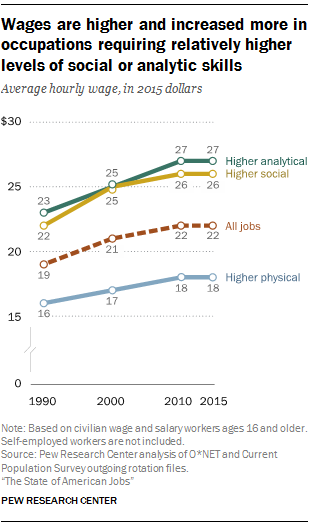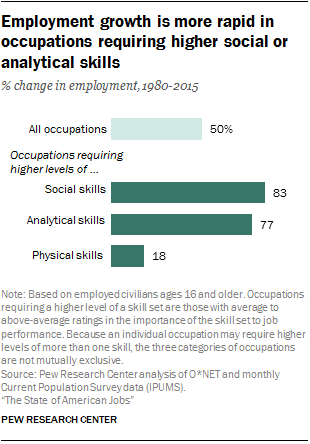The nature of jobs is changing as the knowledge economy rises. Are you and your workforce ready?
According to the PEW Research Center, Occupations are requiring higher levels of social and analytical skills.
47%
Oxford researchers calculate
this is the percentage of
American employment that
is at risk because of the
expected impacts of
computerization in the
foreseeable future
50%
McKinsey analysts estimate
this is the share of activities
workers are paid to do now that
could be automated using
currently available technologies
– accounting for $15 trillion in
wages
45 Years
Automation, robots, artificial intelligence are taking over workers’ traditional tasks
45 years is the timeframe estimated by artificial intelligence experts when “high level machine intelligence” – unaided machines
that can accomplish any given task better and more cheaply than humans – will be developed
The trouble is, most people think many professions are at risk, but not their jobs.
In the emerging knowledge economy, learners must cultivate 21st-century skills, capabilities and attributes that are often seen as touch-to-teach intangibles such as emotional intelligence, curiosity, creativity, adaptability, resilience, and critical thinking. Polymaths will rule the workforce.
How the shifting economic landscape is reshaping work and society and affecting the way people think about the skills and training they need to get ahead









